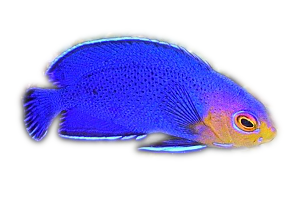
By Bob Goemans

Not Reef Tank Suitable
Likely Fish-Only Tank Suitable
Range: Western Atlantic Ocean: Caribbean to northeast South America.
Size: 8 inches (20 cm)
Natural Environment: Inhabit intertidal zones and hides during daylight hours and feeds at night.
General Husbandry: Rarely seen in the home aquarium trade.
Best maintained only in fish-only aquariums, as these urchins feed not only on algae, but also sponges, bivalves, gastropods, bryozoans, dead animals and also detritus.
Feed small pieces of fish or mussel flesh daily.
Simply not 100% safe with other small invertebrates.
Can be a real bulldozer!
Try feeding algae blocks during evening hours to prevent it from consuming your coralline!
Has a desire for calcium carbonate, which is mainly coralline algae. Therefore can be given pieces of cuttlebone or algae blocks to prevent it from consuming coralline algae, which most aquarists cherish.
In aquariums somewhat devoid of algae, small plaster-of-Paris feeding stones that contain seaweed and algae can also sometimes help lengthen lifespans of these urchins in aquariums.
Taxonomy:
Kingdom: Animalia
Phylum: Echinodermata
Class: Echinoides
Order: Diadematoida
Family: Diadematidae
Genus: Astropyga
FYI: Vulnerable to sudden salinity/specific gravity changes.
Has sharp spines that are venomous and painful if stung, but not really dangerous to your health.
Triggerfish and large wrasses eat urchins.
Experience Level: Intermediate
Diet: Omnivore
Aquarium Environment: Fish-only aquarium
Coral Safe: With caution
Fish Safe: Yes
Invertebrate Safe: With caution
Acclimation Time: Sensitive to specific gravity/salinity changes, therefore be sure to adjust the bag's water to that of the aquarium in which it will be placed by slowly adding small amounts of aquarium water to the bag every few minutes. In most cases, this process should take at least 15 minutes.
Aquarium Hardiness: Moderately hardy
Temperature Range: 72 - 83°F (22 - 28°C)
Minimum Tank Size: 100 gallons
Specific Gravity: 1.023 - 1.025
pH: 8.0 - 8.4
.jpg)